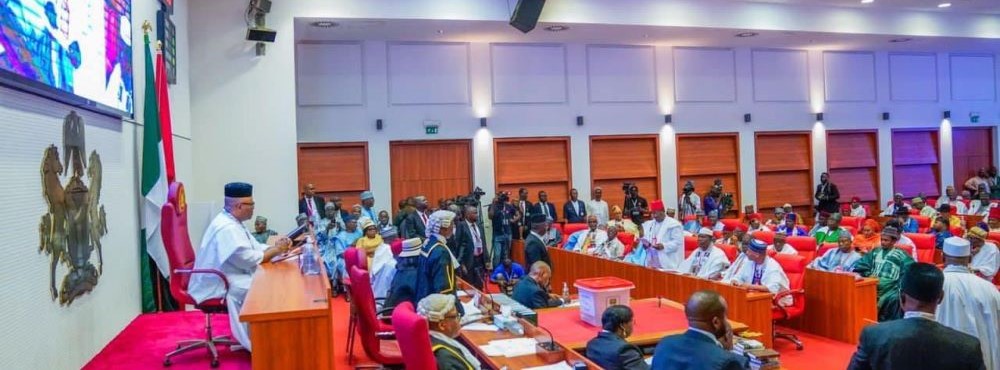(3 Minutes Read)
The Nigerian Senate chambers were plunged into darkness due to an unexpected power outage, delaying the commencement of the day’s sitting and highlighting infrastructure challenges within the nation’s legislative framework.
Senators, caught unprepared awaited the restoration of electricity, emphasizing the need for prompt action from the Abuja Electricity Distribution Company (AEDC) to resume normal operations. The Senate plenary could not commence at its scheduled time of 11 a.m. as many senators were seen waiting in the Senate chambers in darkness for more than an hour before the plenary eventually kicked off. The President of the Senate, Senator Godswill Akpabio, apologised to his colleagues for the power outage and assured them that work was being done to address the situation.
The power outage at the Nigerian Senate is not just a temporary inconvenience but a symptom of deeper infrastructural and operational challenges facing the country at large. It raises questions about preparedness for such unforeseen disruptions and the impact on the legislative process. Moreover, it highlights the importance of reliable infrastructure to ensure the smooth functioning of government operations, a critical component for governance and democracy. As the Senate awaits a resolution, the incident serves as a reminder of the need for robust systems capable of supporting Nigeria’s legislative ambitions without falter.
Read Also:
https://trendsnafrica.com/nigeria-faces-total-power-breakdown-affects-industry-and-households-alike/
https://trendsnafrica.com/power-subsidy-in-nigeria-huge-despite-recent-cuts/
This unexpected hurdle faced by the Nigerian Senate underscores the critical need for infrastructural resilience in supporting the legislative framework of the country. As efforts to address the outage continue, the incident prompts a reflection on the importance of reliable and efficient systems to facilitate governance. While the immediate focus remains on resuming legislative activities, the broader conversation is likely to revolve around enhancing infrastructural capabilities to prevent such occurrences in the future, ensuring that the wheels of governance remain in motion, even in the face of unforeseen challenges.





